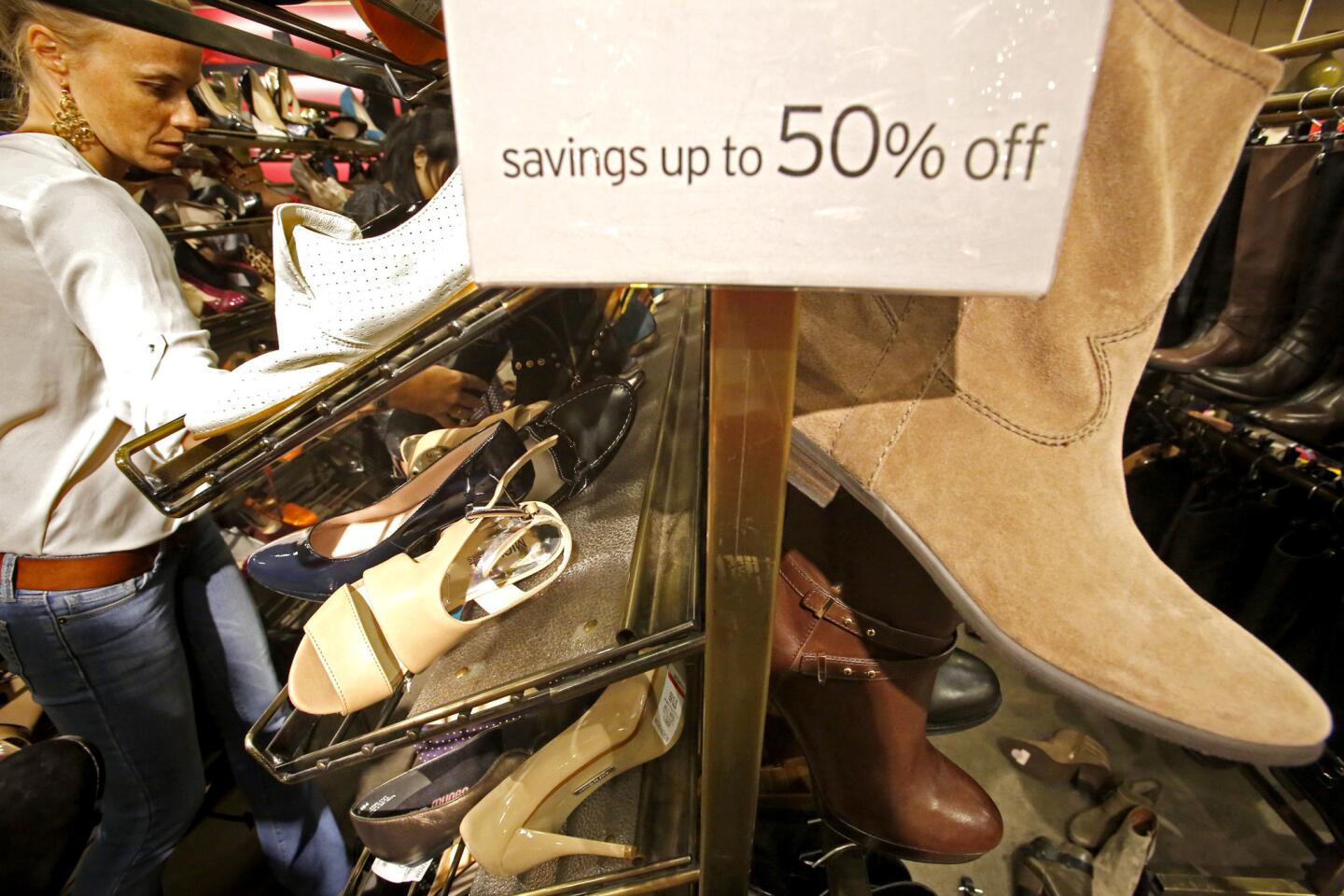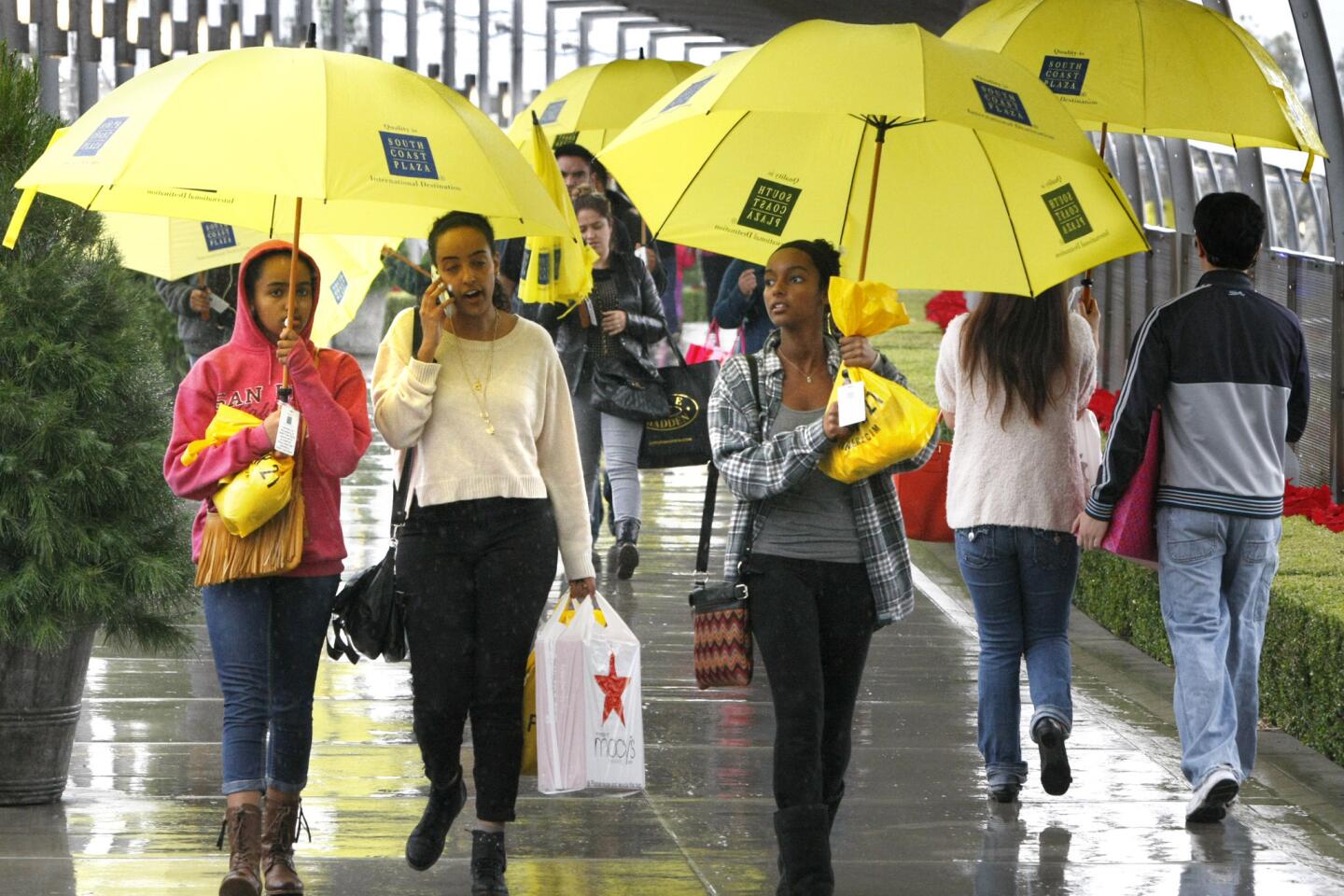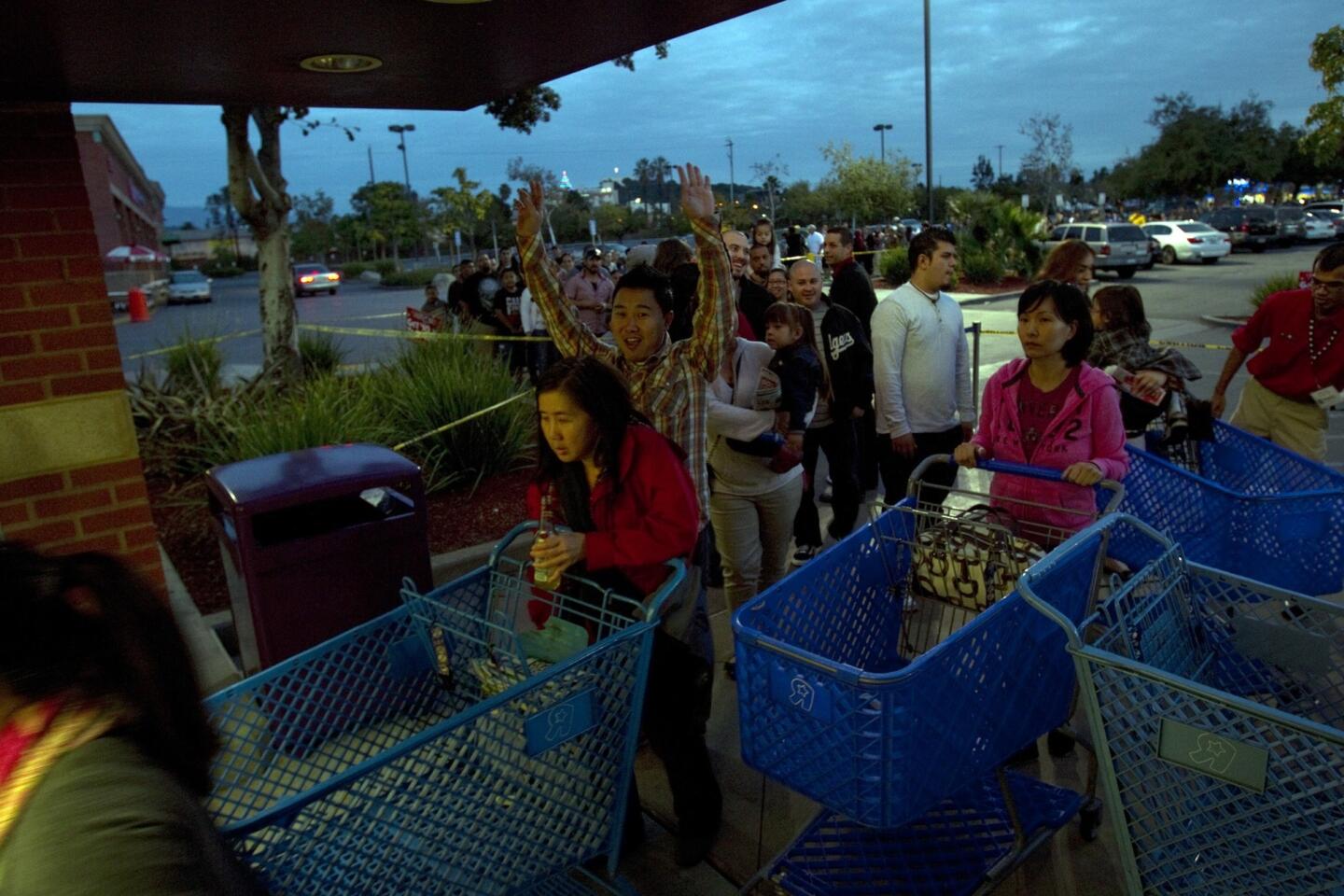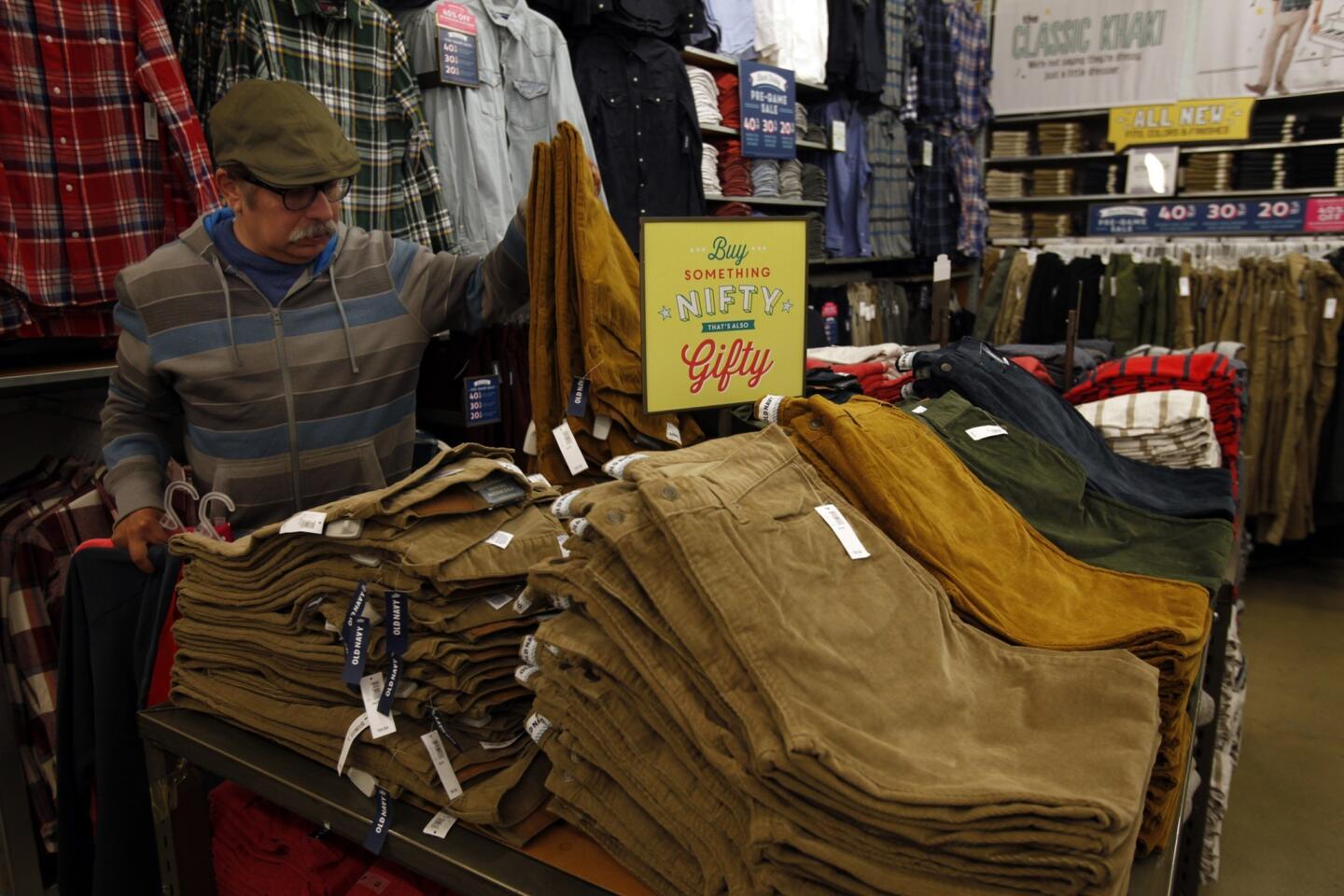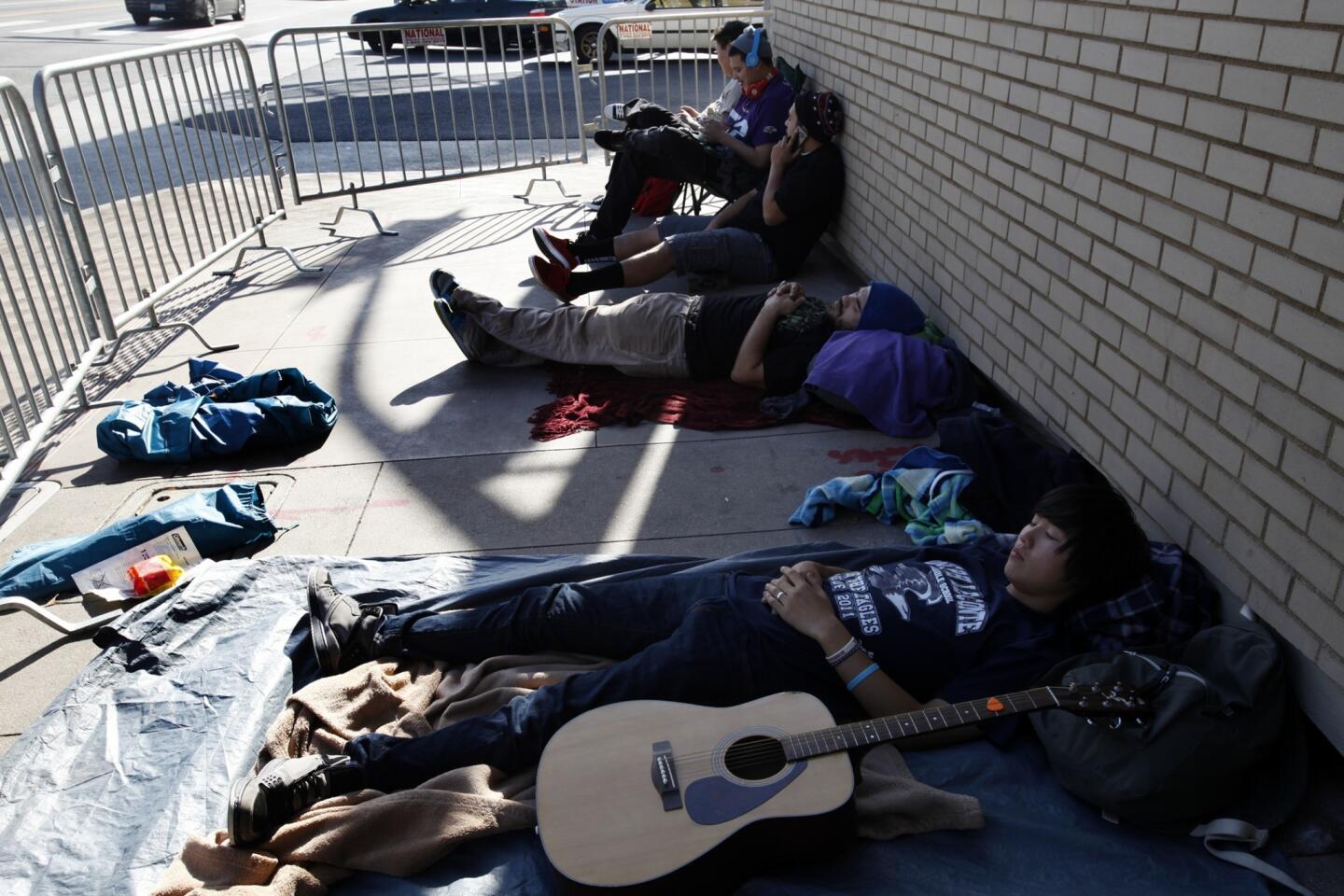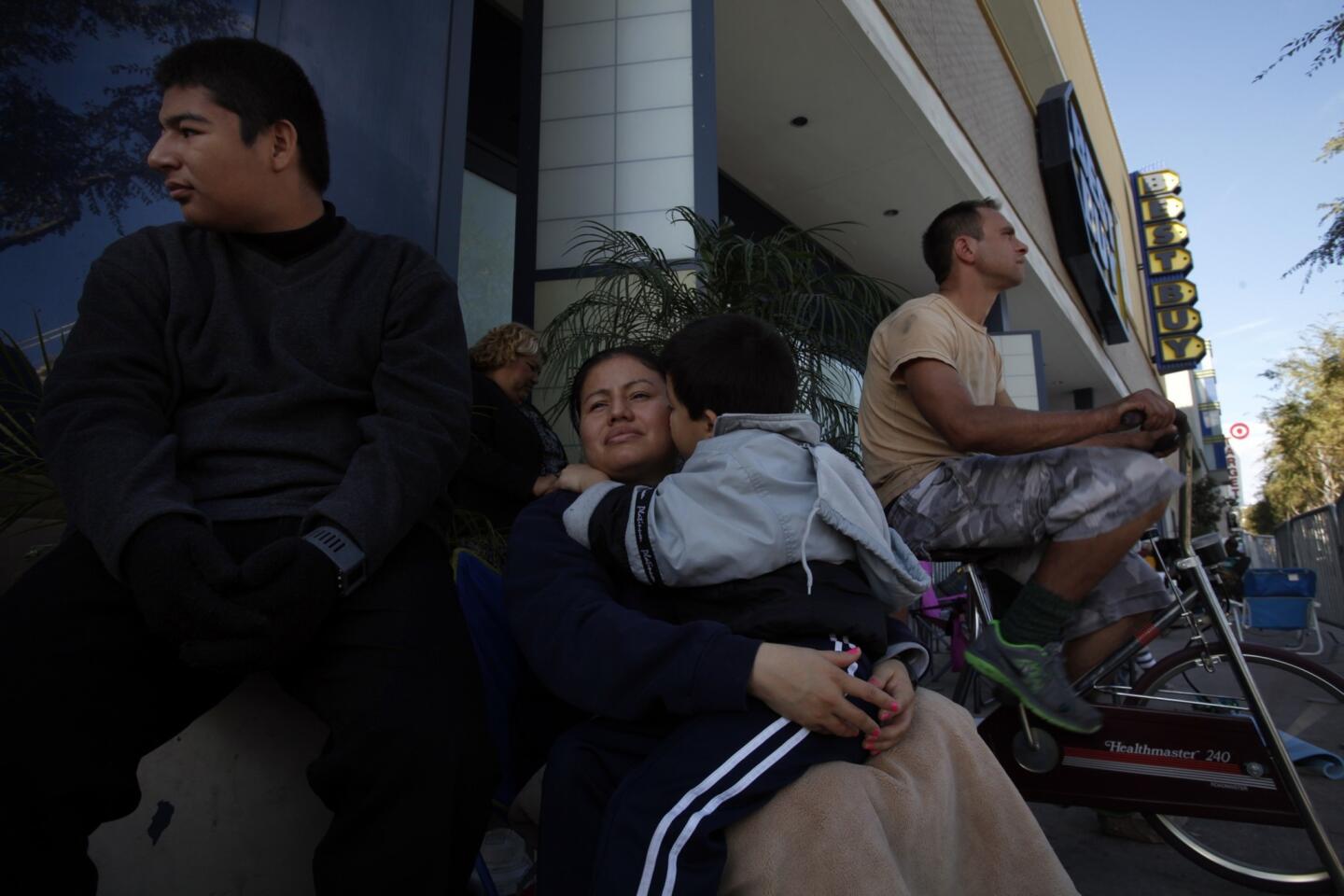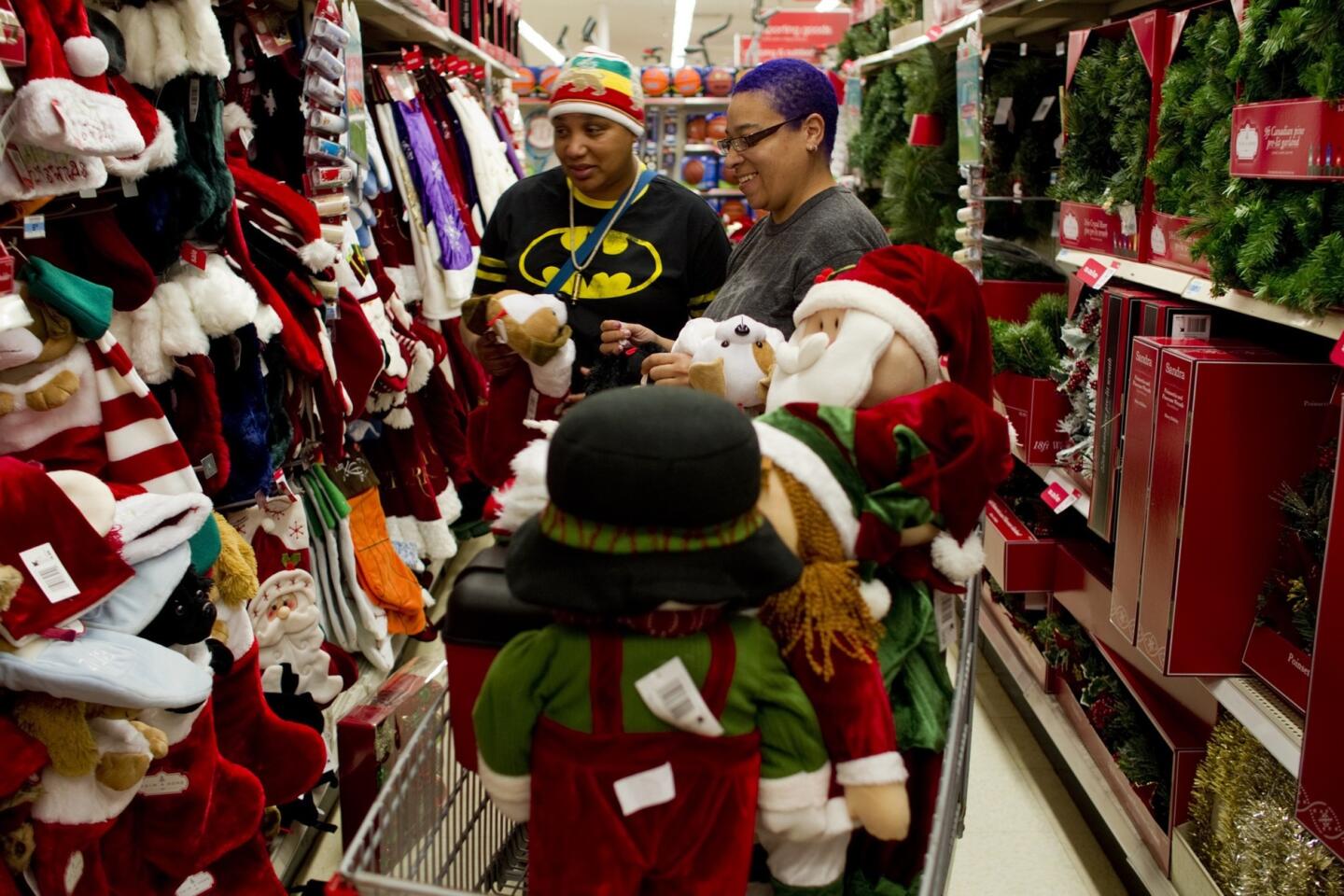Taking a pass on Black Friday
- Share via
It’s Black Friday, and that means hordes of bargain-craving shoppers will lay siege to retailers large and small.
Or not.
While there have been plenty of recent stories in the media attesting to the idea that Black Friday is one of the busiest shopping days of the year, the reality is that most of us prefer to take the holiday a good deal easier.
Nielsen, the market researcher that tends to do a pretty good job of spotting trends, says 85% of consumers won’t go anywhere near a mall or a physical store on Black Friday.
And even though retailers are bending over backward for shoppers by opening earlier and earlier, the Nielsen numbers suggest that consumers are getting sick of the holiday overkill.
In each of the last two years, for example, 82% of consumers stayed home on Black Friday, according to Nielsen. In 2010, the percentage of folks sitting things out was 80%.
The trend seems clear: People aren’t into mandatory shopping. And the more that retailers want us to throw around some money, the less interested we are in doing so.
“That’s probably true,” said Jack Plunkett, head of Plunkett Research, a Houston firm that tracks the retail industry. “But still, that means about 15% of people will go shopping, and that’s clearly enough to get retailers to fight for their attention.”
So we get all those so-called door busters with low-low-low prices for wide-screen TVs and tablet computers.
And the decision by many leading retailers to get a jump on Black Friday by opening on Thanksgiving, once known as a family holiday.
And perpetuation of the myth that people really will get a once-in-a-lifetime deal on Black Friday or thereabouts, so they’d be foolish not to brave the crowds.
In fact, while some of those limited stocks of door busters might indeed be priced to move, there’s really no such thing anymore as a one-time-only sale.
Thanks to the Internet, every day is Black Friday.
And thanks to the Net, retailers are jostling for people’s business pretty much all year round.
“There’s almost no use in going to a store anymore,” said Nikoleta Panteva, senior retail analyst with IBISWorld, a business research firm. “You can find highly competitive prices online throughout the year.”
I’ll attest to that. I like bargains as much as the next shopper, but I deeply dislike visiting malls and big-box stores. So I buy almost everything online.
Once you become savvy about the stuff you like and the brands you prefer, you can become pretty adept at routinely scoring discounts of as much as 50%, and often free shipping to boot, returns included.
In recent months, I’ve purchased a belt from a company in Vermont, a watch band from a company in Florida and a pair of shoes from a company in Washington. Not once did I pay the full retail price.
So why would anyone turn out for the gladiatorial blood sport that is Black Friday?
For many people, “shopping on Black Friday has become a holiday tradition,” said Marshal Cohen, chief retail analyst with market researcher NPD Group.
He likened the experience to attending a football game or a concert. Sure, you could have watched on TV or listened to a CD, but it’s more fun to be there in person.
“It’s something you can do with the whole family,” Cohen said. “It’s a way to be together.”
Call me old-fashioned, but I’m pretty sure this wasn’t the sort of tradition the Pilgrims had in mind when the Thanksgiving feast originated.
I also have to wonder about all the store workers who have to miss time with their families because their employer decided it could turn a fast buck by opening on Thanksgiving Day.
Most such workers receive a little extra for the holiday hours, typically time and a half. But I’m guessing that’s not why they report for duty rather than enjoy a day off with loved ones.
They do so because they’re terrified that not showing up for work will cost them their jobs. Maybe not on Thanksgiving itself, but at some point when their managers are tallying up who has a “good attitude” and who doesn’t.
In case you didn’t know: The United States is the only developed country without a single legally required paid vacation day or holiday. Not one. All paid time off is at the whim of employers.
For that reason, a quarter of all Americans don’t get a single paid day off, according to a recent report from the Center for Economic and Policy Research.
Cohen said that any day in which 15% of consumers turn out to shop is a big day for retailers, and that’s undoubtedly true.
But considering that 85% of consumers are happy to skip Black Friday, it’s not much of a stretch to figure that just as many — probably more — would prefer devoting Thanksgiving to its intended purpose: a sharing of gratitude for the simple things.
That may be bad for business. But there are 364 other days in the year to stimulate the economy.
David Lazarus’ column runs Tuesdays and Fridays. He also can be seen daily on KTLA-TV Channel 5 and followed on Twitter @Davidlaz. Send your tips or feedback to david.lazarus@latimes.com.
More to Read
Inside the business of entertainment
The Wide Shot brings you news, analysis and insights on everything from streaming wars to production — and what it all means for the future.
You may occasionally receive promotional content from the Los Angeles Times.



